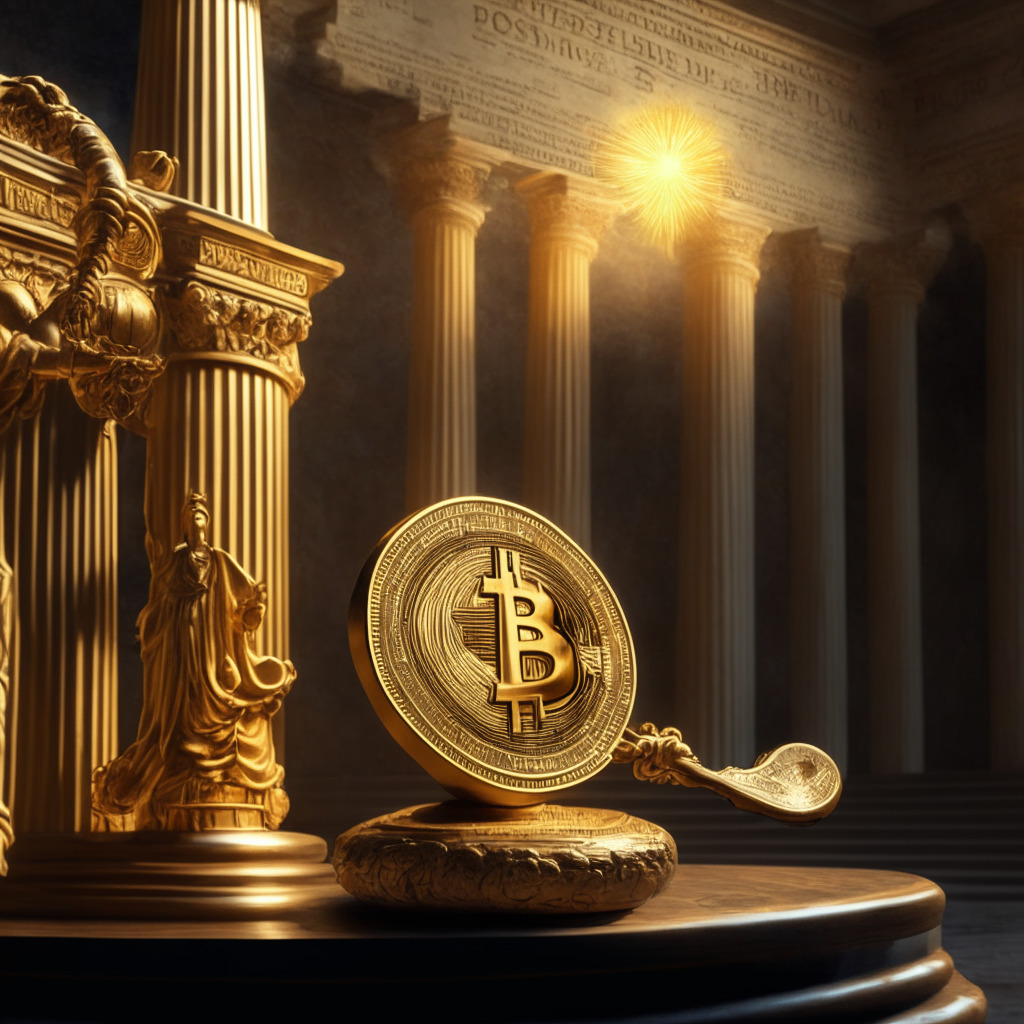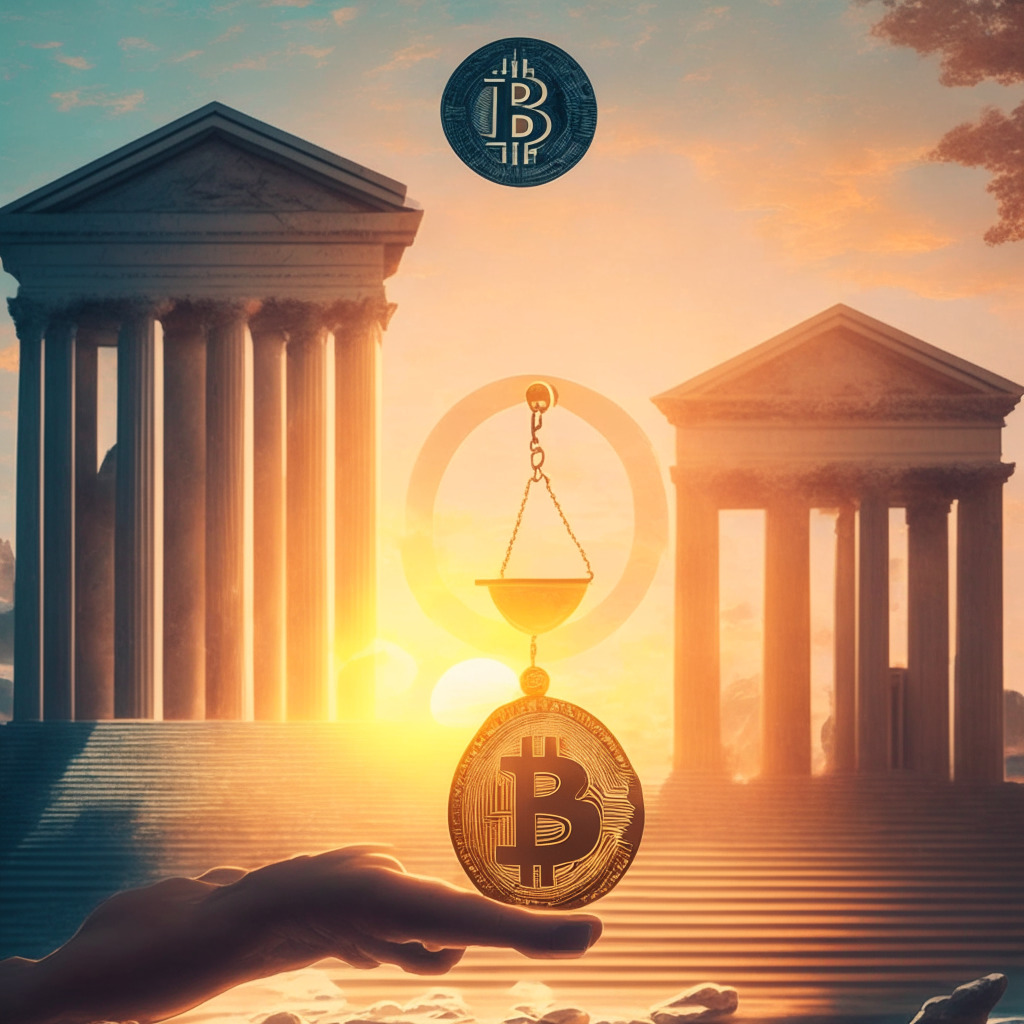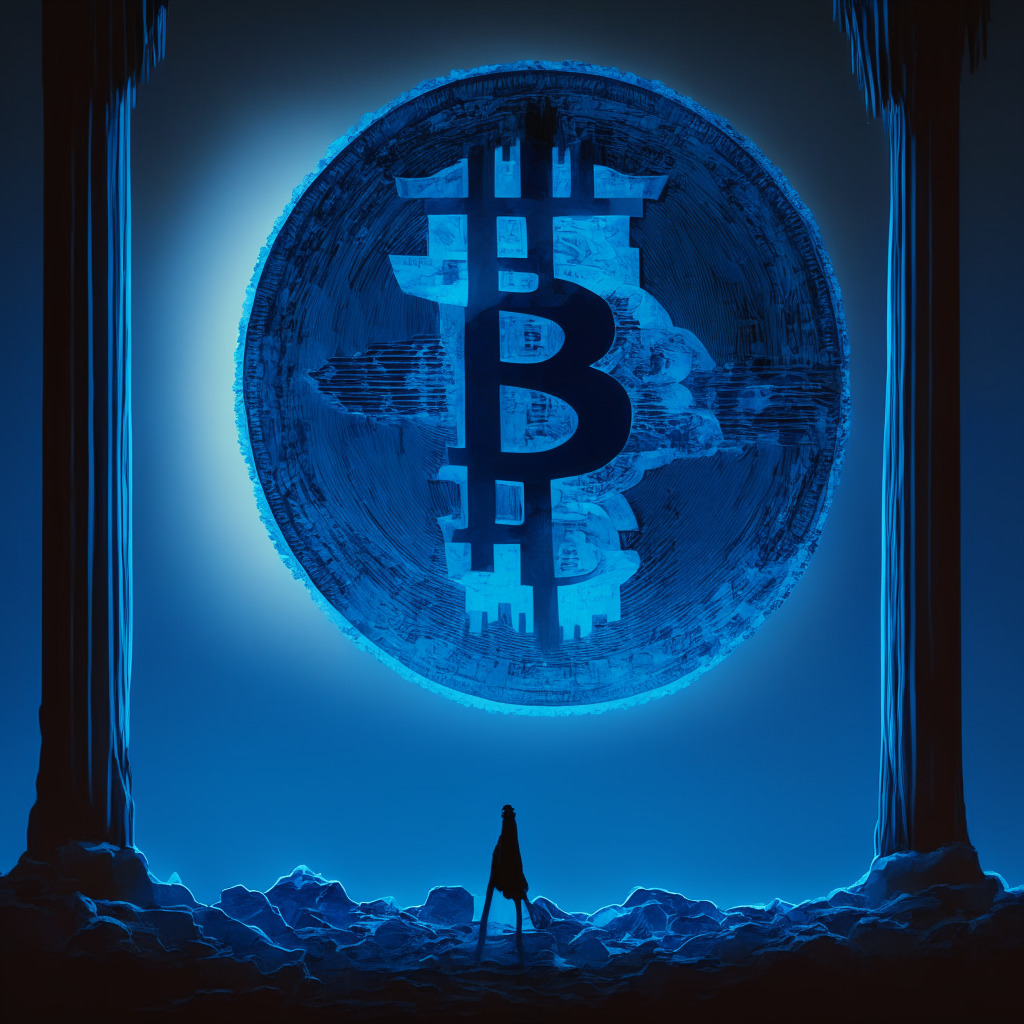Binance.US has criticized a ‘compel and reply’ motion by the SEC, calling it overly arduous and unreasonable. The SEC’s demand for details from Binance’s top executives has been countered, arguing that these executives don’t have exclusive knowledge regarding the topics exploring in the consent order. The ongoing situation intensifies the friction between regulatory bodies and crypto institutions on the scope of information demanded and the legitimacy to serve such demands.
Search Results for: US Security and Exchange Commission
Crypto Regulation: Is Gensler’s Staunch SEC Stance Justified or Not?
“SEC Chair, Gary Gensler, asserts that crypto assets are securities to be regulated by the SEC, despite recent legal disputes. He believes most crypto assets meet the Howey Test, a legal criterion determining if an asset is a security. Crypto companies and courts debate the future direction of crypto regulation.”
Thailand Crypto Fraud: A Tale of Triumph, Regulatory Challenges & Investor Safety
Thailand’s Cyber Crime Investigation Bureau arrested five individuals associated with a fraudulent crypto investment platform that swindled over $27 million. The incident highlights risks associated with the industry and suggests the need for evolving regulations amidst persistent worldwide scams. Despite new regulatory measures, usability and investor protection still pose significant challenges.
SEC vs Ripple Labs: A Twisted Tale of Cryptocurrency Regulations and Legal Ambiguity
“In a recent development, the U.S. SEC has challenged the court’s previous decision that XRP was not a security when sold to retail investors. However, the SEC’s move has been critiqued as contradictory, considering past statements by the agency asserting the sufficiency of existing crypto regulations. The case’s outcome could significantly impact the crypto market.”
Nigeria’s Naira Scarcity: A Case for DeFi Over CBDCs and the Road to Cashlessness
At a recent gathering of local blockchain experts, the discussion revealed the potential for blockchain technology to have alleviated Nigeria’s naira shortage. Initiatives such as minting new naira notes and driving Central Bank Digital Currency adoption, the experts argued, could have been executed more effectively through a decentralized finance (DeFi) system. This would empower citizens and better prepare them for future transitions. While blockchain promises transparency, concerns about scalability and environmental impact remain.
SEC Crackdown vs Blockchain Evolution: LBRY’s Legal Tussle and Its Impacts on Crypto Industry
LBRY blockchain firm, initially ceding to the SEC’s ruling that it operated unregistered crypto asset securities, has filed an appeal. This verdict and ongoing regulatory friction highlight challenges in balancing innovation encouragement with investor protection in the emerging blockchain field.
Courting Crypto Regulation: Spot Bitcoin ETFs and their Role in a More Responsible Industry
“The recent court ruling overruling the SEC’s decision to deny Grayscale’s Bitcoin trust to become a spot ETF could potentially bring crypto into line. Approval of spot Bitcoin ETFs could introduce consistent regulatory standards, promote market equilibrium and offer investor protections, without undermining securities law enforcement.”
Ripple’s Regulatory Rollercoaster: A Beacon of Hope for the Crypto Industry?
“The Ripple CTO expressed optimism about the U.S. regulatory landscape, citing the court ruling that dismissed the classification of Ripple’s XRP as a security. This decision denotes a potential shift away from the rigorous scrutiny that the cryptocurrency industry faced. Despite previous reluctance, judges are showing skepticism towards SEC cases, which may benefit the industry via prompted legislative changes. These legal triumphs mark potential shifts in the regulatory arena, offering hope to industry participants.”
Taiwan’s Crypto Regulation Tightrope: Balancing Innovation and Security
“Taiwan drafts guidelines to regulate unregistered foreign virtual asset service providers (VASPs). The Financial Supervisory Commission (FSC) produced a draft of ten principles, aiming to protect the market from abusive practices while promoting transparency and differentiating custody of assets.”
Advancing Crypto Security: Hashkey Exchange Partners with OneDegree for Asset Insurance
Hashkey Exchange Hong Kong signs an MOU with fintech firm, OneDegree, creating a new insurance coverage plan for all digital assets across hot and cold storage. Aimed to boost security measures, this move faces criticism on its robustness, but highlights a trend toward creating trust and improving the crypto market’s opinion.
Deflecting the Blame: Uniswap Wins Case and Stirs Up Security Law Decisions in Crypto World
“A class action lawsuit against decentralized crypto exchange, Uniswap, was dismissed due to the unclear path for plaintiffs suing over alleged “scam tokens”. The judge argued that the issuers of these tokens were the culprits, not Uniswap. The case highlighted a legal quandary in identifying responsible parties amidst the anonymous, decentralized nature of crypto protocols, further clouding the jurisdiction and regulatory role of bodies like the SEC. The outcome implies that software creators could evade liability for misuse of their platforms.”
The Paradoxical Rise of Liquid Staking: A Shift in DeFi Amid Regulatory Pressures and Yield Quests
“Liquid staking protocols, particularly Lido, have seen a massive rise recently despite an overall downturn in the DeFi industry. The popularity of liquid staking, driven by regulatory pressures and attractive yield returns, suggests a potential shift within the DeFi ecosystem.”
Navigating the Future: Ripple vs SEC and the Implications on Crypto Regulation
“The ongoing Ripple versus SEC lawsuit opens up debates about future cryptocurrency regulations. Recent developments suggest that if token sales through exchanges are found not to infringe U.S securities laws, it could limit the SEC’s appeal scope and drive towards settlement, significantly influencing the future of crypto operations and security laws.”
Navigating the Ripple Effect: SEC’s Token Tug-of-War and Its Broader Implications
Ripple Labs objects to the SEC’s appeal of a judge’s ruling on the XRP token’s nature. The SEC wants to reclassify XRP as a security when sold to the public. Their appeal is paused until a resolution, highlighting the potential implications for future cryptocurrency lawsuits. Arguments involve whether selling XRP equates to an investment contract and jurisdiction over sales to institutional investors. Ripple’s response promises to challenge classifications of these sales as securities transactions.
Surging Waves in XRP Market: Major Transfers, Legal Fights and Potential Price Prospects
“In a swift series of events, the XRP cryptocurrency market experienced major activity, with 66,666,659 XRP transferred from Binance to an undisclosed wallet. This coincides with Ripple’s legal proceedings and its action of placing substantial amounts of XRP into secure escrow accounts.”
Ripple vs SEC Showdown: Debating XRP Token’s Status and Impact on Crypto Landscape
In Ripple’s ongoing legal tussle, their legal representatives dismissed an appeal by the US SEC on the status of its XRP token. This dismissal is based on a July court ruling stating the XRP token did not majorly qualify as a security for retail sales. The expected jury trial date for this lawsuit is set for 2024, suggesting potential long-term implications for Ripple and the broader crypto industry.
Robinhood’s Colossal ETH Holdings Vs Binance’s Calculated BUSD Retreat: Winners and Losers in Crypto Sphere
Robinhood, known for its online brokerage services, has been identified as the fifth largest holder of Ethereum ($2.54 billion worth), serving as a secure depository for user balances. Despite this, Robinhood has seen a decrease in their crypto trading activity. Meanwhile, Binance is winding down support for its Binance USD (BUSD) due to allegations of being an unregistered security.
Navigating the Transition from BUSD to FDUSD in the Crypto Market: Is It Worth the Risk?
“Binance confirmed plans to wind down support for Binance USD by 2024, promoting instead the First Digital USD. This decision follows a regulatory notice by the SEC to Paxos, alleging Binance USD as an unregistered security. The success of First Digital USD depends on its acceptance and adoption within the crypto community.”
Crypto Commodities: Bitcoin and Ether and their Legal Status in US Courts
U.S. District Court Judge Katherine Polk Failla recently referred to Ether and Bitcoin as “crypto commodities,” dismissing a lawsuit against decentralized exchange Uniswap. The legal classifications of cryptocurrencies continue to vary, with other digital currencies such as XRP classified as a security. Amidst conflicting views, U.S. lawmakers are yet to determine whether SEC or the CFTC will have authority over digital assets. Specialists suggest these legal classifications are crucial for creating a more organized and regulated crypto environment.
Navigating the Regulatory Landscape: The Evolving Future of NFT Transactions
“The SEC has raised concern over NFT sales and transactions, alleging a company raised $30 million through unregistered NFT transactions. Despite some legal setbacks, proponents view such activities as signs of industry maturation, with corrective measures fostering increased trust in the marketplace.”
Uniswap Lawsuit Dismissal: A precedent for DeFi litigation and future of Regulatory Bodies
Legal proceedings against decentralized exchange protocol Uniswap took a turn as a class action lawsuit was scrapped. This development questioned Uniswap’s compliance with financial regulations, emphasizing their role didn’t mean they owned the traded assets. The removal of this lawsuit could set a precedent for decentralized entities facing similar accusations and underscores the legal intricacies for such organizations.
Surge in Crypto Space: Binance’s Expansion, HashKey Partnership, Patricia Token, and Favorable EOS White listing
“Binance Japan aims to triple its token offerings by listing 100 more. HashKey partners with imToken for digital asset self-management. Patricia, an Nigerian cryptocurrency exchange, launches ‘Patricia Token’, a debt management tool. SEBA Bank’s Hong Kong branch obtains approval-in-principle for securities and virtual asset dealings. EOS is whitelisted by the JVCEA for trading against Japanese yen. Cathedra Bitcoin improves its cryptocurrency mining production.”
Navigating the Stirs of Crypto Volatility: Evergrande Collapse, Grayscale Triumph and Altcoin Security
“In this era of volatility, the potential Evergrande bankruptcy could have a silver lining for the crypto market. Even though insolvencies like Evergrande might signal trouble for risk-driven assets, it could shift investors toward Bitcoin. However, new scams like the disappearance of 16 trillion Pepecoin tokens highlight the need for crypto holders to remain cautious and scrutinize investments.”
Bitcoin Spot ETF Reconsideration: A Cause for Optimism or Premature Euphoria?
The U.S. Security and Exchange Commission’s reconsideration of Grayscale’s Bitcoin spot ETF has sparked optimism among market participants. Despite this, some remain cautious, warning that the decision doesn’t guarantee Grayscale an ETF listing. Further, the stagnation of digitized asset markets and potential negative effects of bitcoins held at short-term loss could impact faith in Bitcoin. However, the decision suggests possible future favorable decisions on regulatory reforms in the U.S. digital asset markets.
When Blockchain Meets Regulation: A Tale of NFTs, SEC and Unseen Chains
In an unprecedented move, the U.S. SEC has classified a non-fungible token (NFT) as a security, underlining the regulatory complexities as crypto technologies evolve. The incident serves as a warning to crypto projects, revealing that despite the inherent freedom within the crypto landscape, invisible chains bound them when engaging in regulated activities.
Navigating the Gray: Binance, Grayscale, and the Uncharted Legal Landscape of Crypto
“Binance, a leading cryptocurrency exchange, faces possible legal action from the US Securities and Exchange Commission (SEC), potentially linked to violations of sanctions involving Russia. Meanwhile, the SEC and Grayscale experience a landmark clash, highlighting evolving regulatory issues and the role of self-regulation in preserving the balance between financial freedom and investor protection in crypto markets.”
Stricter Crypto Regulations in South Korea: Balancing Investor Protection and Market Survival
South Korean crypto exchanges like Upbit and Bithumb are mandated to uphold a reserve fund of at least 3 billion won to enhance user security. This evolved regulatory measure, part of the “Virtual Asset Real-Name Account Operation Guidelines,” aims to address potential risk events. Limits are set on these reserves to ensure financial stability. The regulations also aim to strengthen KYC processes and optimize fund transfer rules. Despite these measures promising a more secure experience, concerns arise for smaller exchanges possibly facing unsustainable financial burdens.
Bankruptcy Judge’s Hesitation on Crypto Tokens as Securities: A Case Study of Celsius
The bankruptcy judge recently declined to classify CEL, Celsius’s native token, as a security amid Ripple Labs and SEC’s ongoing legal issues. CEL’s business model significantly deviated, being referred to as “insolvent since inception” by a court-appointed examiner, who suggested CEL was part of a problematic scheme. The rising token value benefits the company but raises concerns about ethical considerations and customer implications.
Unveiling Tether’s Billion Dollar Liquidity Cushion Amidst Crypto Security Concerns
“Tether maintains a $3.3 billion liquidity cushion across 15 blockchain ecosystems, bolstering its stablecoin ecosystem. However, concerns about the currency’s liquidity and asset backing persist. Other Tether stablecoins lack the same liquidity cushion, failing to sustain the 1-1 peg in crisis times.”
Navigating the Regulatory Jungle: Unraveling US Cryptocurrency Rules and Impacts on Market Dynamics
CoinRoutes CEO Dave Weisberger discusses the complexity of cryptocurrency regulation in the United States, criticizing the use of outdated structures for new technologies. He argues for a requisite evolution of regulatory approach, without stifling innovation, warning of the potential loss of American competitiveness in the rapidly expanding crypto industry.
Legal Shifts in Ripple v. SEC: A Game of Musical Chairs and Patricia’s PTK Launch: Building Suspense or Building Concern in Crypto World?
“The ongoing SEC v. Ripple lawsuit takes a fascinating turn with the withdrawal of three SEC attorneys and the addition of new ones, potentially impacting case progression. Meanwhile, Nigerian crypto exchange Patricia launches its native token, Patricia token (PTK), amidst security breach speculations and customer fund access issues, sparking worries of a potential exit scam. These developments underscore existing uncertainties in crypto regulation.”
Blazar Token Debacle: A Cautionary Tale of Crypto Pensions and the Increasing Regulatory Scrutiny
“John DeSalvo, a former corrections officer, is accused of a fraudulent scheme concerning the Blazar Token. Over 200 investors lost $620,000 due to DeSalvo’s misleading claims. The incident underlines the importance of regulatory vigilance and careful investing in the volatile crypto market.”






























